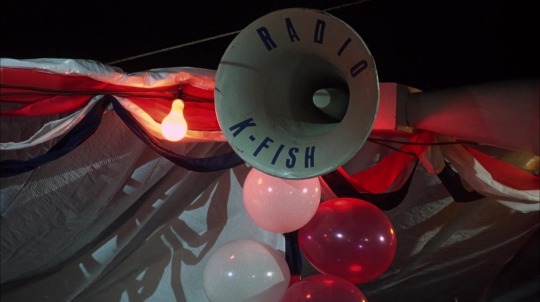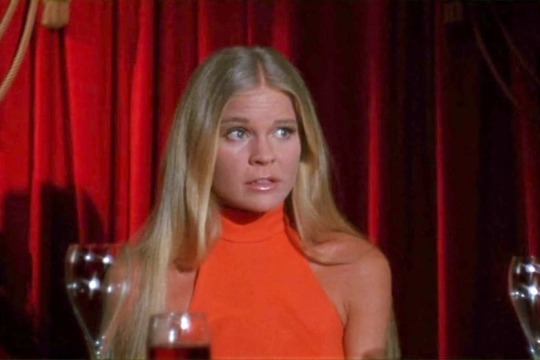#daniel lacambre
Explore tagged Tumblr posts
Text



Richard Compton - Macon County Line (1974)
223 notes
·
View notes
Text

Santa Claus Has Blue Eyes (Le père Noël a les yeux bleus), Jean Eustache (1966)
#Jean Eustache#Jean Pierre Léaud#Gérard Zimmermann#Henri Martinez#René Gilson#Michèle Maynard#Carmen Ripoll#Maurice Domingo#Daniel Lacambre#Philippe Théaudière#René Coll#César Gattegno#Christiane Lack#1966
5 notes
·
View notes
Photo

45 notes
·
View notes
Text


Barbet Schroeder and Claudine Soubrier in The Bakery Girl of Monceau
Philippe Beuzen and Catherine Sée in Suzanne's Career
The Bakery Girl of Monceau (Éric Rohmer, 1963)
Cast: Barbet Schroeder, Claudine Soubrier, Michèle Girardon, Bernard Tavernier. Screenplay: Éric Rohmer. Cinematography: Bruno Barbey, Jean-Michel Meurice.
Suzanne's Career (Éric Rohmer, 1963)
Cast: Catherine Sée, Philippe Beuzen, Christian Charrière, Diane Wilkinson. Screenplay: Éric Rohmer. Cinematography: Daniel Lacambre.
One-third of Éric Rohmer's Six Moral Tales series, the first two films, The Bakery Girl of Monceau and Suzanne's Career, together take up about an hour and a half of screen time and were shot on the cheap, using 16 mm film and available locations. But their greatest virtue is economy of storytelling. By "moral," of course, Rohmer meant anything but didactic; instead, his films are about the way people behave, especially in matters of sexual attraction. He leaves any judgment of what his characters do up to the audience, though sometimes his characters deliver their own verdicts about what has been done and said. Especially "said," because Rohmer's films are typically more about talk than action. Both films are also about the young in Paris in the early 1960s, a period and place on the brink of a revolution not only in politics but also in morals, manners, and style. This was a time just before the young of Paris reinvented themselves as what Jean-Luc Godard would call, in Masculin Féminin (1966), "The Children of Marx and Coca-Cola." The students in these films still wear suits and neckties, not bluejeans, to class, and even among themselves maintain a kind of politesse. The protagonist-narrators of both films are shy guys, dithering on the edges of their infatuations and needing help from more outgoing friends to make the first move at the young women they have fallen for. The young man played by future director Barbet Schroeder in The Bakery Girl is a bit more outgoing than Bertrand (Philippe Beuzen) in Suzanne's Career, but both blunder their way into romance. In fact, the former has a touch of the caddishness of Guillaume (Christian Charrière) in the latter film, hitting on Jacqueline (Claudine Soubrier), the lower class bakery girl, while trying to catch a glimpse of the more sophisticated Sylvie (Michèle Girardon), a member of his own social class. Even when the tables are turned, and he learns that Sylvie, laid up with a broken ankle, has been spying on him while he is toying with Jacqueline, he still throws over the bakery girl for her. We don't see Jacqueline's reaction to being dumped -- that might have tilted the moral tale toward didacticism. And Sylvie seems to feel no remorse about either her voyeurism or his touches of caddishness: She marries him anyway. Suzanne's Career is more complex, with money (or the lack of it) playing a key role in the amatory games being played by its quartet of characters. As in The Bakery Girl, it's the woman who apparently wins out in the end: Suzanne (Catherine Sée), after her on-again, off-again relationship with Guillaume, winds up happily married -- at least if we can judge from Bertrand's assessment of the situation. As always in Rohmer's films, the talk is what matters.
#The Bakery Girl of Monceau#Suzanne's Career#Éric Rohmer#Barbet Schroeder#Claudine Soubrier#Philippe Beuzen#Catherine Sée
3 notes
·
View notes
Text
Craggus Comfort Movies: Battle Beyond The Stars (1980) Review
These are unsettling times so I'm kicking off a series of #CraggusComfortMovies with a look back at a childhood favourite: the buxom battleshipped Battle Beyond The Stars (1980) #Review
There’s something so intoxicatingly comforting about Roger Corman’s sci-fi reimagining of “The Magnificent Seven”, itself a remake of “Seven Samurai” that I’m surprised it’s not regulated by the government. It’s appeal probably lies in its perfect placement at the start of the home video boom in the early eighties when it was available to rent and its only competition was “Star Trek: The Motion…
View On WordPress
#CraggusComfortMovies#1980#7/10#Aaron Lipstadt#Adventure#Akira Kurosawa#Allan Holzman#Anne Dyer#Ansley Carlin#Brian Coventry#Charles William Breen#Cliff Raven#Comfort Movies#Dallas Clarke#Dan Thompson#Dan Vincent#Daniel Carlin#Daniel Lacambre#Darlanne Fluegel#Don Keith Opper#Doug Carleson#Durinda Wood#Earl Boen#Ed Carlin#Eric Morris#Featured#Forrest Chadwick#Frank Martinez#Gale Anne Hurd#Galen Thompson
0 notes
Photo

La Carrière de Suzanne / Au cours d’une soirée, une étudiante passe d’invités en invités un plateau de petits fours à la main et termine son parcours en mangeant seule, à même le plateau, face à un miroir.
#cinéma#La Carrière de Suzanne#six contes moraux#Eric Rohmer#Catherine Sée#Christian Charrière#Philippe Beuzen#Diane Wilkinson#1963#Daniel Lacambre
0 notes
Text
La carrera de Suzanne - Eric Rohmer
Bertrand y Guillaume, dos universitarios que mantienen una ambigua amistad, entablan relación con Suzanne, una joven empleada que representa para Bertrand el prototipo de la chica fácil y superficial. Cuando Guillaume consigue seducirla, en Bertrand, enamorado platónicamente de Sophie, surge un sentimiento contradictorio que oscila entre la atracción y el rechazo hacia Suzanne. Ese sentimiento oculta el temor a no ser aceptado en el caso de que intentase abordarla, ya que su orgullo no podría tolerar ese rechazo.
Segundo cuento "moral" de Rohmer.
(FILMAFFINITY)

Dirección: Eric Rohmer
Fotografía: Daniel Lacambre (B&W)
1963
Francia
0 notes
Photo










Humanoids from the Deep aka Monster (1980)
#humanoids from the deep#1980#barbara peeters#jimmy t. murakami#daniel lacambre#mark goldblatt#sci fi#horror#film#screencaps#schlock#new world pictures#roger corman#united artists#monster
119 notes
·
View notes
Text
Review: Macon County Line
Review: Macon County Line
[Originally published in Movietone News 35, August 1974]
Macon County Line has no special meaning in Macon County Line, but that’s the least of the film’s sins against form and sense, not to mention—and I shall mention—decency. A headnote assures us that this is a true story, one that happened in Louisiana in 1954. Louisiana is a lucky break; 1954 is a lucky break. 1954 means that the first few…
View On WordPress
#Alan Vint#Cheryl Waters#Daniel Lacambre#Geoffrey Lewis#Jesse Vint#Joan Blackman#Macon County Line#Max Baer#Movietone News 35#Richard Compton#Stu Phillips
0 notes
Text
Humanoids from the Deep










Director: Barbara Peeters
Director of Photography: Daniel Lacambre
2 notes
·
View notes
Text







Richard Compton - Macon County Line (1974)
72 notes
·
View notes
Text



Richard Compton - Macon County Line (1974)
13 notes
·
View notes
Photo

#battle beyond the stars#sador#john saxon#jimmy t. murakami#roger corman#daniel lacambre#r.i.p. john saxon
0 notes
Photo









The Velvet Vampire (Stephanie Rothman, 1971)
Cast: Michael Blodgett, Sherry E. DeBoer, Celeste Yarnall, Gene Shane, Jerry Daniels, Sandy Ward, Paul Prokop, Chris Woodley, Robert Tessler, Johnny Shines. Screenplay: Maurice Jules, Charles S. Swartz, Stephanie Rothman. Cinematography: Daniel Lacambre. Art direction: Teddi Peterson. Film editing: Stephen Judson, Barry Simon. Music: Roger Dollarhide, Clancy B. Grass III.
You won't see worse actors than Michael Blodgett and Sherry E. DeBoer (billed as Sherry Miles) as Lee and Susan Ritter, a young couple who fall into the clutches of Diane LeFanu (Celeste Yarnall) in The Velvet Vampire. And you probably won't encounter a wackier vampire movie, one set in the desert, of all places. But blood-sucking Diane seems immune to the sun until the very end, when she's attacked by a gaggle of cross-brandishing people under a sun that has pierced the Los Angeles smog. So what is this low-budget programmer doing on the Criterion Channel, that streamer of international film classics of the highest order? It's probably there because it's October, and the channel is doing its best to fill the annual glut of horror movies with some that demonstrate the history and variety of the genre. And also, perhaps, because director Stephanie Rothman was a product of the Roger Corman quickie-movie factory that gave a start to directors like Francis Ford Coppola, Martin Scorsese, and James Cameron, and actors like Jack Nicholson, Bruce Dern, and Diane Ladd. Rothman never reached those heights, but she built a career in exploitation movies that were marked by her emphasis on strong women and her shrewd instincts as a writer-director. So The Velvet Vampire has become a cult classic for reasons that transcend the ineptness of some of its performances -- though Yarnall, in fact, is actually quite good in her role -- and the creakiness of its screenplay. Rothman makes the most of the desert setting, and she finesses the lack of a budget for stunt work and special effects when Diane meets her demise at the end. Unable to make the character appear to burst in flames, she cuts from the cowering Diane to a shot of logs in a fireplace, achieving the effect with simple editing. She provides an erotic charge by suggestion, with a comparative minimum of nudity. It's not a good film, but it's an entertaining example of how to do a lot with very little.
1 note
·
View note